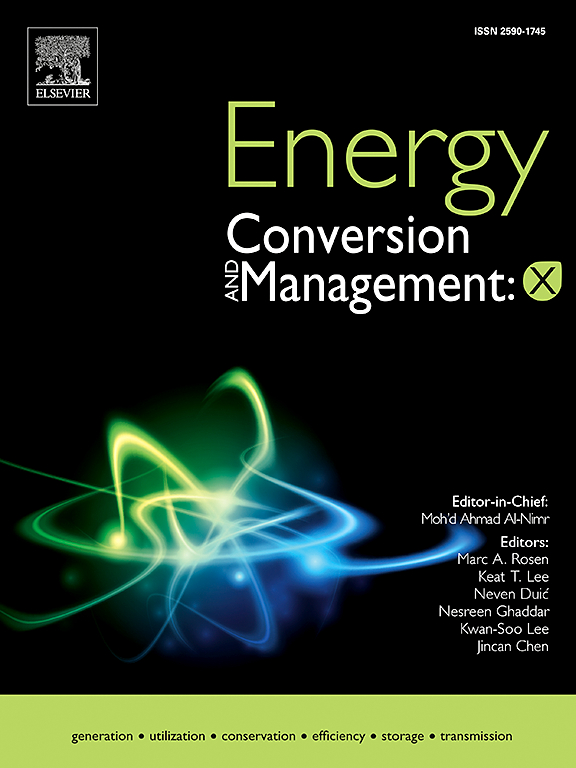Well-to-wheel greenhouse gas emissions comparison of electricity and biomethane urban buses
IF 7.6
Q1 ENERGY & FUELS
引用次数: 0
Abstract
Public transport can represent an important solution to reduce the greenhouse gas emissions of the transport sector, even more when relying on low-carbon powertrains. Compared with other public transport modes that are already mostly electrified, buses still rely on oil products in many cities around the world. This work analyses two promising alternative options for urban mobility, by evaluating the greenhouse gas emissions intensity of the supply chains of battery electric buses and biomethane-powered internal combustion engines. In addition to general results, the analysis also presents a focus on each EU country, to highlight the potential variability related to different operating conditions. The outcome of the study confirms that interesting emissions savings can be achieved through the substitution of diesel buses with these low-carbon alternatives. The level of emissions savings depends on the source of electricity generation and the feedstock used to produce biomethane. A bus fleet composed by half electricity and half biomethane buses could lead to savings between 70%–125% depending on the country (figures higher than 100% can be obtained thanks to negative emissions associated to biomethane production from some feedstocks). These results can support decision makers working on strategies to reduce emissions of urban transport modes, as they confirm the interesting opportunity represented by these technologies compared to the current situation, and even more when considering them against the use of private cars in urban environments.
电力和生物甲烷城市公交车从井到轮的温室气体排放比较
公共交通可以成为减少交通部门温室气体排放的重要解决方案,尤其是在依赖低碳动力系统的情况下。与其他大部分已经电气化的公共交通方式相比,在世界上许多城市,公交车仍然依赖石油产品。本研究通过评估电池电动公交车和生物甲烷内燃机供应链的温室气体排放强度,分析了两种有前景的城市交通替代方案。除了一般结果外,该分析还对每个欧盟国家进行了重点分析,以突出与不同操作条件相关的潜在可变性。研究结果证实,通过用这些低碳替代品替代柴油公交车,可以实现有趣的减排。减少排放的程度取决于发电的来源和用于生产生物甲烷的原料。根据国家的不同,由一半电力和一半生物甲烷公交车组成的公交车队可以节省70%-125%(由于某些原料生产生物甲烷产生负排放,可以获得高于100%的数字)。这些结果可以支持决策者制定减少城市交通方式排放的战略,因为它们证实了这些技术与当前情况相比所代表的有趣机会,甚至在考虑它们与城市环境中私家车的使用时更是如此。
本文章由计算机程序翻译,如有差异,请以英文原文为准。
求助全文
约1分钟内获得全文
求助全文
来源期刊

Energy Conversion and Management-X
Multiple-
CiteScore
8.80
自引率
3.20%
发文量
180
审稿时长
58 days
期刊介绍:
Energy Conversion and Management: X is the open access extension of the reputable journal Energy Conversion and Management, serving as a platform for interdisciplinary research on a wide array of critical energy subjects. The journal is dedicated to publishing original contributions and in-depth technical review articles that present groundbreaking research on topics spanning energy generation, utilization, conversion, storage, transmission, conservation, management, and sustainability.
The scope of Energy Conversion and Management: X encompasses various forms of energy, including mechanical, thermal, nuclear, chemical, electromagnetic, magnetic, and electric energy. It addresses all known energy resources, highlighting both conventional sources like fossil fuels and nuclear power, as well as renewable resources such as solar, biomass, hydro, wind, geothermal, and ocean energy.
 求助内容:
求助内容: 应助结果提醒方式:
应助结果提醒方式:


